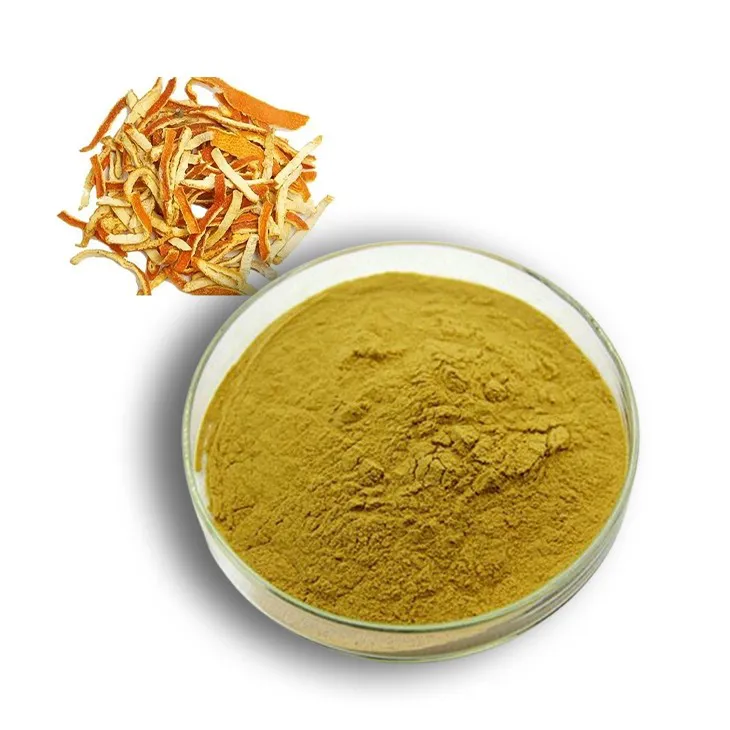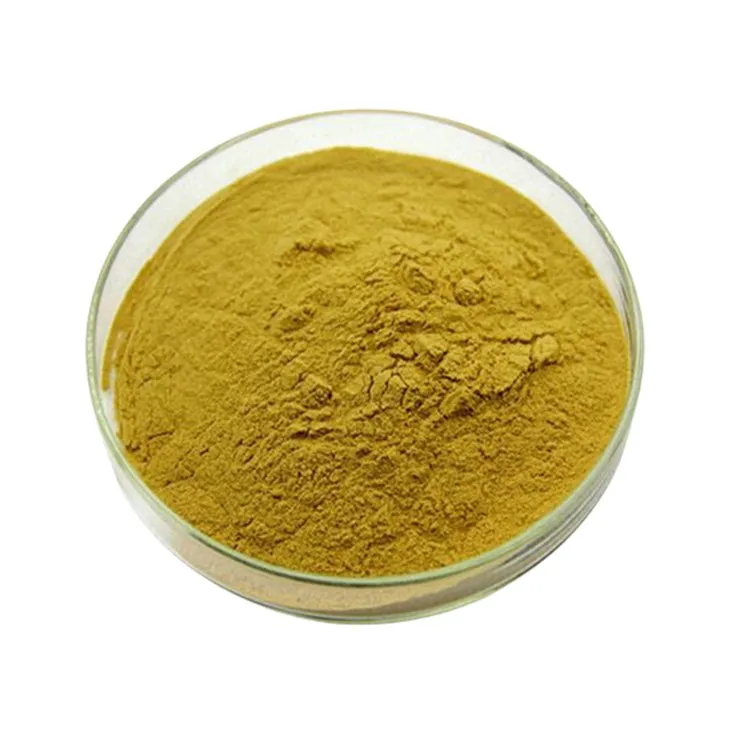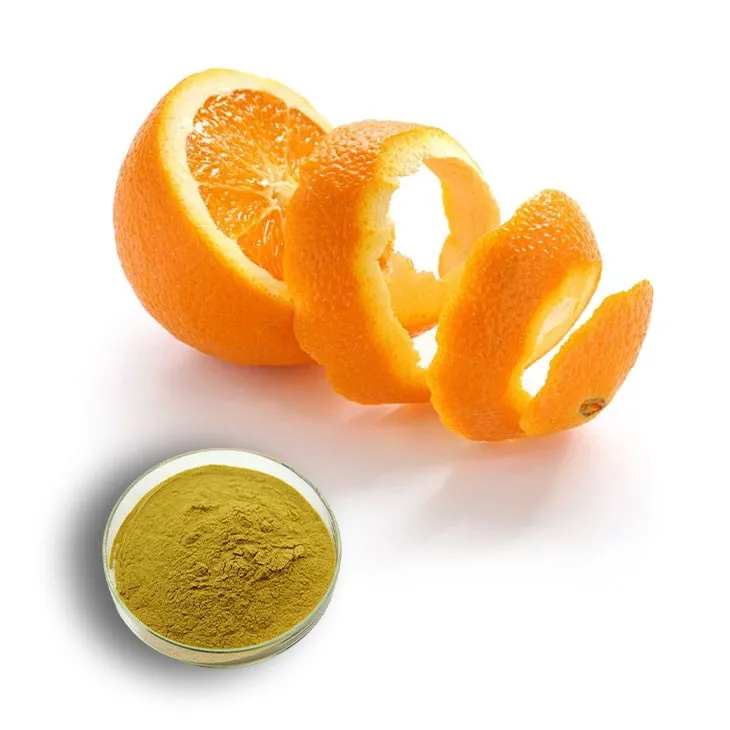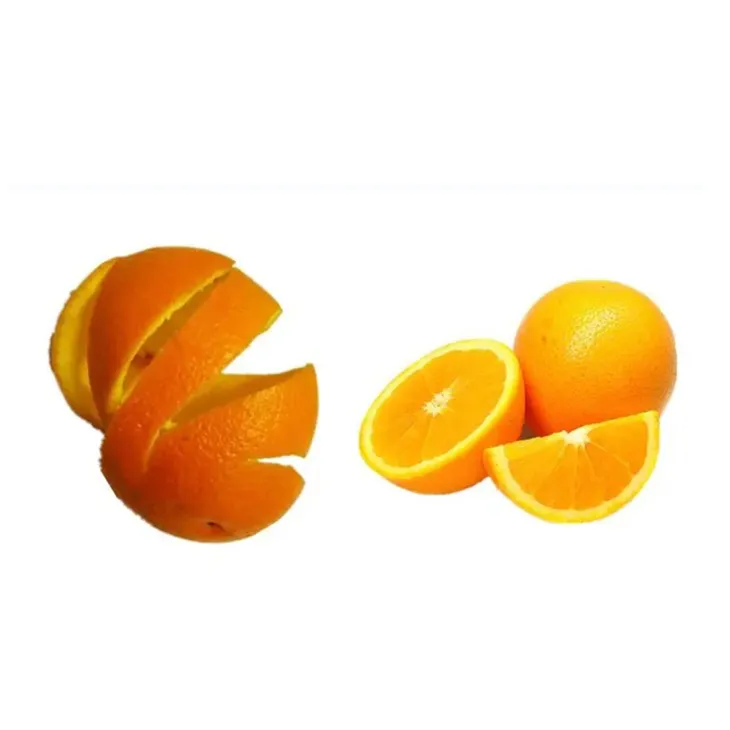- 0086-571-85302990
- sales@greenskybio.com
what is hesperidin and diosmin
2025-05-18

In the continuously evolving landscape of nutrition and health, bioflavonoids have garnered significant interest due to their potent antioxidant properties and associated health benefits. Among these, Hesperidin and Diosmin stand out as two prominent bioflavonoids known for their potential contributions to circulatory health and beyond. Found primarily in citrus fruits, these compounds have been studied for their effects on vascular health, inflammation, and various chronic conditions. This article provides an in-depth look at what Hesperidin and Diosmin are, their potential health benefits, and how they can be incorporated into a healthy lifestyle.
What is Hesperidin?
Hesperidin is a flavonoid glycoside predominantly found in citrus fruits such as oranges, lemons, grapefruits, and limes. It belongs to the flavanone class of flavonoids and is particularly abundant in the peel and membranous parts of these fruits. Hesperidin plays a crucial role in the protection and defense of plants against environmental stressors and pests. For humans, hesperidin is valued for its antioxidant, anti-inflammatory, and vasoprotective properties. Upon consumption, hesperidin is metabolized into its aglycone form, hesperetin, which is more bioavailable and responsible for many of the biological effects observed.

What is Diosmin?
Diosmin is another flavonoid compound closely related to hesperidin. It can also be found in citrus fruits, although it is often used in its semi-synthetic form, derived from hesperidin through a chemical process. Diosmin has been widely used in Europe for decades as a natural therapy for various circulatory disorders. Diosmin is recognized for its potential benefits in improving vascular health, particularly in the treatment of chronic venous insufficiency (CVI), which includes conditions like varicose veins and hemorrhoids. Its therapeutic effects are attributed to its ability to improve venous tone, enhance microcirculation, and reduce inflammation in vascular tissues.

The Health Benefits of Hesperidin and Diosmin
Numerous studies have explored the health benefits of hesperidin and diosmin, with a particular focus on their effects on vascular health, inflammation, and general well-being. Some of the key benefits include:
1. Improvement of Circulatory Health
Both hesperidin and diosmin are known for their positive effects on the circulatory system. They work by enhancing the integrity and function of blood vessels, leading to improved venous return and reduced symptoms associated with venous disorders. For individuals with varicose veins, chronic venous insufficiency, or hemorrhoids, hesperidin and diosmin can provide relief by strengthening blood vessels and reducing venous stasis.
2. Anti-Inflammatory Properties
Hesperidin and diosmin exhibit significant anti-inflammatory effects, which can help reduce swelling and inflammation in the body. By suppressing pro-inflammatory cytokines and mediators, these bioflavonoids can alleviate symptoms of inflammation-associated conditions. This makes them beneficial for managing symptoms of inflammatory conditions such as arthritis.
3. Antioxidant Action
The potent antioxidant properties of hesperidin and diosmin help protect cells from oxidative damage caused by free radicals. This protection is crucial in preventing the onset of chronic diseases and premature aging. Their antioxidant activity can also support cardiovascular health by preventing oxidative stress-related damage to blood vessels.
4. Lowering of Blood Pressure
Some research suggests that hesperidin may contribute to the lowering of blood pressure. Its vasodilatory effects help relax blood vessel walls, improving circulation and reducing hypertension risk. This benefit has significant implications for cardiovascular disease prevention.
5. Metabolic Benefits
Emerging research indicates that hesperidin and diosmin might play a role in improving metabolic health. Studies have suggested potential benefits in managing cholesterol levels, improving lipid profiles, and supporting blood glucose regulation. These properties may assist in reducing the risk of metabolic syndrome and type 2 diabetes.
6. Potential Anti-Cancer Properties
Though more research is needed, initial studies have indicated that hesperidin and diosmin may exhibit anti-cancer properties due to their ability to induce apoptosis (programmed cell death) in cancer cells and inhibit tumor growth. Their antioxidant and anti-inflammatory effects may also contribute to these protective benefits.

How to Incorporate Hesperidin and Diosmin into Your Diet
To take advantage of the health benefits of hesperidin and diosmin, consider the following dietary and supplemental strategies:
1. Citrus Fruits
The most natural way to obtain hesperidin and diosmin is through the consumption of citrus fruits. Incorporate a variety of fruits such as oranges, grapefruits, lemons, and limes into your diet. Consuming the whole fruit, including the pulp and peel, where possible, maximizes intake of these beneficial compounds.
2. Juices and Extracts
Citrus juices can also provide a source of these bioflavonoids, although the content may vary depending on the processing method. Look for juices with pulp, which are more likely to contain higher levels of hesperidin and diosmin.
3. Supplements
For those who struggle to obtain sufficient amounts through diet alone, supplements are available containing standardized doses of hesperidin and diosmin. These supplements are often used to treat specific vascular conditions under medical guidance. It's important to consult a healthcare provider before starting any new supplement regimen.
4. Dietary Diversity
While citrus fruits are the primary source of hesperidin and diosmin, maintaining a diverse and balanced diet rich in fruits, vegetables, whole grains, and lean proteins can enhance overall nutrient intake and health benefits.

Safety and Considerations
Hesperidin and diosmin are generally considered safe when consumed in dietary amounts. However, as with any supplement, it is important to consult with a healthcare provider before introducing them, especially for those with existing health conditions or those taking medications that might interact. High doses of supplements can occasionally cause side effects such as gastrointestinal discomfort, headaches, or allergic reactions. Adherence to recommended dosages is crucial to minimizing potential side effects.
Conclusion
Hesperidin and diosmin are powerful bioflavonoids offering numerous health benefits, particularly in the realm of circulatory health. From promoting vascular integrity to combating inflammation and oxidative stress, these compounds present valuable opportunities for enhancing well-being. By incorporating citrus fruits into your diet and considering supplementation when appropriate, you can take advantage of the potent health effects that hesperidin and diosmin provide.
As research continues to explore and validate the diverse benefits of these compounds, integrating them into a balanced lifestyle supports not only vascular health but also holistic wellness. Whether through diet, lifestyle adjustments, or supplementation, hesperidin and diosmin serve as potent allies in the pursuit of optimal health.
- ▶ Hesperidin
- ▶ Citrus Bioflavonoids
- ▶ Plant Extract
- ▶ lycopene
- ▶ Diosmin
- ▶ Grape seed extract
- ▶ Sea buckthorn Juice Powder
- ▶ Fruit Juice Powder
- ▶ Hops Extract
- ▶ Artichoke Extract
- ▶ Mushroom extract
- ▶ Astaxanthin
- ▶ Green Tea Extract
- ▶ Curcumin
- ▶ Horse Chestnut Extract
- ▶ Other Product
- ▶ Boswellia Serrata Extract
- ▶ Resveratrol
- ▶ Marigold Extract
- ▶ Grape Leaf Extract
- ▶ New Product
- ▶ Aminolevulinic acid
- ▶ Cranberry Extract
- ▶ Red Yeast Rice
- ▶ Red Wine Extract
-
Beta Carotene
2025-05-18
-
Artichoke Extract
2025-05-18
-
Senna Leaf Extract
2025-05-18
-
Genistein
2025-05-18
-
Saw Palmetto Extract
2025-05-18
-
Hawthorn Extract
2025-05-18
-
Withania Somnifera Extract
2025-05-18
-
Eucommia Ulmoides Extract
2025-05-18
-
Sophora Flavescens Root Extract
2025-05-18
-
Nettle Root Extract
2025-05-18





















